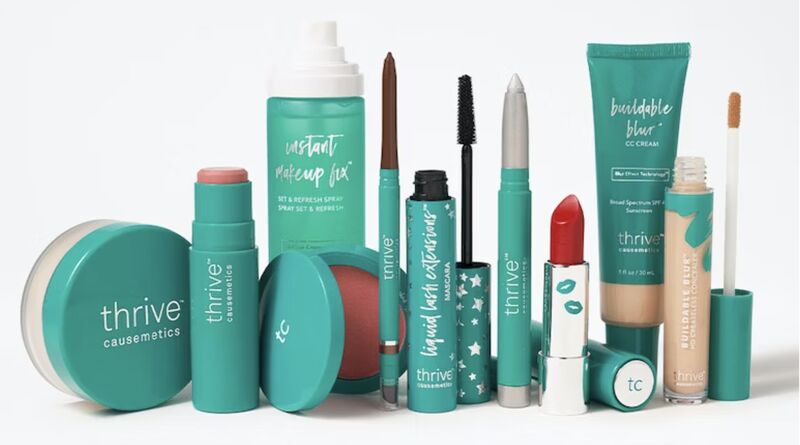The age at which girls start wearing makeup can vary widely depending on personal preferences, cultural norms, and individual circumstances. Some girls may start experimenting with makeup as early as pre-teen years, while others may not become interested until their teenage years or even later. It is important to note that there is no specific or ‘normal’ age to start wearing makeup, as it is a personal choice.
Some girls may start experimenting with makeup in their early teens, around 12 to 14 years old, while others may not start until much later or may never develop an interest in wearing makeup at all.

The reasons why girls start wearing makeup can also vary. Some common motivations are societal pressures, peer influence, wanting to experiment with self-expression, enhancing one’s appearance, increasing self-confidence, and feeling more mature or grown-up. However, it is important to note that these motivations are not uniform for all girls and each individual may have different reasons or attitudes towards makeup.
Is It Normal To Not Like/Want To Wear Makeup?

Growing up as a young person, especially a young woman, is societal pressure to conform to certain beauty standards. One of these expectations is the use of makeup. However, it is entirely normal to not like or want to wear makeup. Personal preferences and comfort levels with makeup can vary greatly from person to person, and there is no right or wrong choice.
It is important to remember that makeup should be a personal choice and not something that is forced upon someone. It is perfectly acceptable to not enjoy the process of applying or wearing makeup, or to prefer a natural or minimalistic look. It is crucial to prioritize your own happiness and comfort above societal expectations when it comes to personal appearance.
If you find yourself feeling pressured to wear makeup or if there is judgment from others about your choice not to wear it, it can be helpful to remind yourself that beauty comes in many forms and that your natural self is enough. Embracing and celebrating your natural beauty can be empowering and freeing.
Ultimately, the decision to wear or not wear makeup is yours and yours alone. What matters most is that you feel comfortable and confident in your own skin.
Similarly, it is perfectly normal for some individuals to not like or want to wear makeup. People have diverse preferences, and choosing to wear or not wear makeup is a personal decision. Whether someone enjoys makeup or not, like I said, what matters most is that they feel comfortable and confident in their own skin.
Best practices for Wearing Makeup as a teenager

There are several best practices for wearing makeup as a female teenager. Here are some tips to consider:
- Start with a fresh canvas: Always cleanse and moisturize your face before applying makeup. This will create a smooth base for your products and help your makeup last longer.
- Choose the right foundation: Use a foundation that matches your skin tone perfectly. Test it on your jawline or neck to ensure a seamless match. Avoid heavy coverage if you don’t need it, and always blend well.
- Less is more: As a teenager, it’s important to keep your makeup light and natural-looking. Avoid heavy contouring or too much foundation, as it can appear too mature for your age. Enhance your natural features rather than overdoing it.
- Focus on your eyes or lips: Decide whether you want to emphasize your eyes or your lips for a balanced look. If you choose bold eyeshadow or eyeliner, keep your lips more subtle with a nude or light-colored lip gloss. Alternatively, if you opt for a bold lip color, keep your eye makeup simple with neutral shades.
- Take care of your skin: Good skincare practices are essential to maintaining healthy skin underneath your makeup. Cleanse, tone, and moisturize regularly to avoid clogged pores and breakouts. Remove all makeup before sleeping to allow your skin to breathe and recover overnight.
- Use makeup to enhance, not hide: Remember, the purpose of makeup is to enhance your features and boost your confidence, not to mask your appearance. Embrace your natural beauty and use makeup to accentuate what you love about yourself.
- Practice good hygiene: Always make sure to keep your makeup tools and products clean. Wash your makeup brushes regularly, disinfect them if possible, and discard expired or outdated products.
- Be mindful of the occasion: Adapt your makeup look according to the occasion, like school, parties, or family events. A natural and fresh look is usually appropriate for day-to-day situations, while you can experiment with bolder or more glamorous looks for special occasions.
- Learn from tutorials and experiment: YouTube and other platforms offer countless makeup tutorials specifically targeted towards teenagers. Experiment with new techniques, colors, and styles to find what suits you best. Don’t be afraid to try new things and discover your personal makeup preferences.
- Remember that beauty comes from within: Makeup is a fun way to express yourself and feel more confident, but it’s important to remember that true beauty comes from within. Focus on developing a positive self-image, practicing self-love, and embracing your unique qualities.
Conclusion
In conclusion, wearing makeup as a female teenager can have both positive and negative effects. On one hand, it can boost confidence, enhance self-expression, and allow for creativity. It can also help teenagers navigate social norms and feel more accepted among their peers. However, there are potential drawbacks such as harmful chemicals, unrealistic beauty standards, and the pressure to conform to societal expectations. It is essential for teenage girls to make informed choices about wearing makeup, taking into consideration their personal preferences, individuality, and overall well-being. Ultimately, the decision to wear makeup should be a matter of personal choice and should be approached with a healthy balance and understanding of one’s own self-worth beyond physical appearance.


